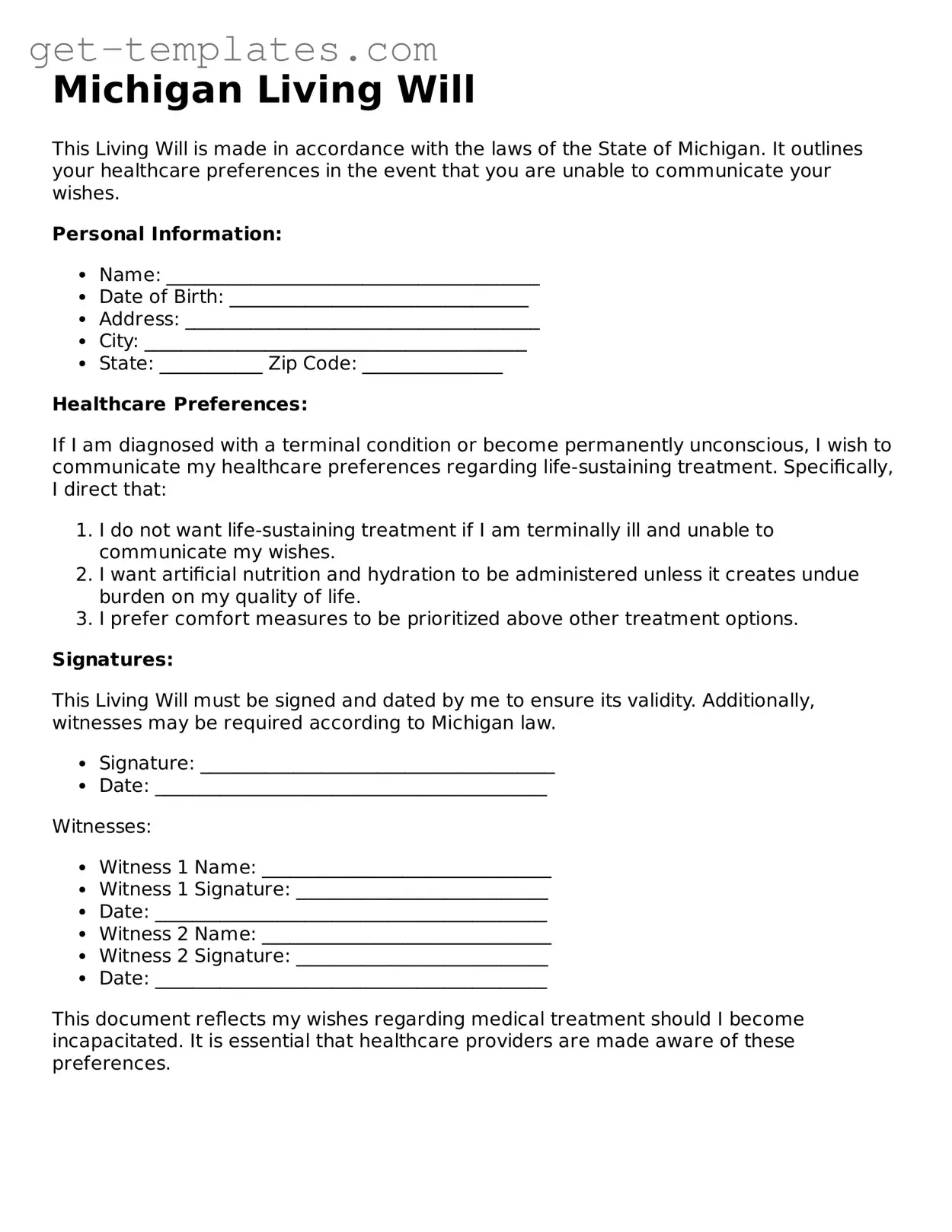Attorney-Approved Living Will Document for Michigan
A Michigan Living Will form is a legal document that allows individuals to express their wishes regarding medical treatment in the event they become unable to communicate those wishes themselves. This form plays a crucial role in ensuring that one's healthcare preferences are respected, particularly in critical situations. By outlining specific directives, individuals can provide guidance to their loved ones and medical professionals, easing the decision-making process during challenging times.
Get Document Online

Attorney-Approved Living Will Document for Michigan
Get Document Online
You’re halfway through — finish the form
Finish Living Will online — edit, save, download made easy.
Get Document Online
or
⇓ PDF Form
